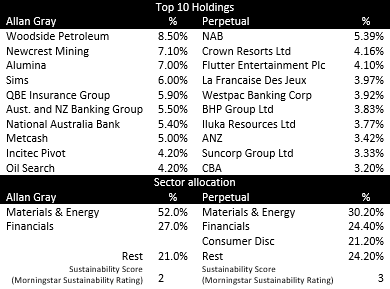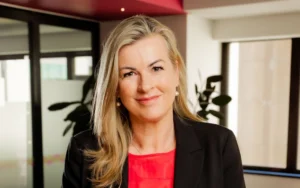Which managers are leading the value investing boom?
In a nutshell, value investing is buying ‘quality’ companies at share prices well below intrinsic value. Quality is defined using four characteristics:
- A high-quality business that sells high-quality products, usually market leaders.
- Low debt – tend to handle downturns better.
- Sound management.
- Recurring earnings – start-ups are not preferred.
Warren Buffett’s famous saying “Finding an outstanding company at a sensible price” is starting to ring true, with investors rotating out of growth and back into value, following a surprise uptick in bond yields earlier this year.
Value managers are back
In this article we compare two heavyweight value managers – Allan Gray and Perpetual Limited (ASX: PPT). The latest March performance numbers published by Morningstar highlight a great rotation back into value stocks having boosted leading value fund manager performance data and flows. Allan Gray and Perpetual have both posted excellent results.
The first fund is Allan Gray’s Australian Equity Fund – This contrarian value manager thrives by NOT following the crowd. As contrarians, their investment style is to ‘do the opposite’. Resist trends. Uncover opportunities in areas where nobody else is looking. Next to no competition, unloved and away from the herd is where Allan Gray finds its greatest opportunities.
The challenger is Perpetual’s Australian Share Fund – This isn’t so much a contrarian investor, more so a quality-focused investor. The fund invests in a diverse portfolio of high-quality Australian shares to achieve long-term capital growth and regular income: shares in companies with sound management, conservative debt levels, recurring earnings and a high-quality business. Perpetual uses a simple formula: it assesses the quality of a business by looking at its products, positioning and brands, competitive advantage, barriers to entry and any issues influencing future performance. Perpetual buys if the share price is attractive relative to the return potential.

Allan Gray’s Australian Equity fund was the top value performer over the six months to the end of March 2021; by a nose, at least. It returned a cool 26.2 per cent, beating the S&P/ASX 300 Accumulation index, which returned 18.4 per cent. It was up 49.3 per cent for the year to the end of March. Perpetual wasn’t far behind, with the Australian share fund returning 26.1 per cent for the six months to the end of March, also beating the index. Over the year to the end of March it returned a whopping 50.4 per cent. These performance figures highlight how the great rotation into value stocks has supported leading value fund managers, with both Allan Gray and Perpetual delivering terrific returns for long-suffering value unit holders over the past year.
Here are the individual holdings of both portfolios as at March 31, 2021.

All in all, both funds returned near-identical performance figures and use a similar value-based investment style, however both are very different in composition. Allan Gray has an obvious tilt towards materials and energy stocks (52 per cent of its portfolio), the traditional domain of value investors, compared to Perpetual’s (30.2 per cent) more broad-based allocation. The top four stocks being materials and energy stocks representing 30 per cent of Allan Gray’s portfolio. On the flip side, Perpetual’s top four stocks are split between financials and gambling/entertainment.










